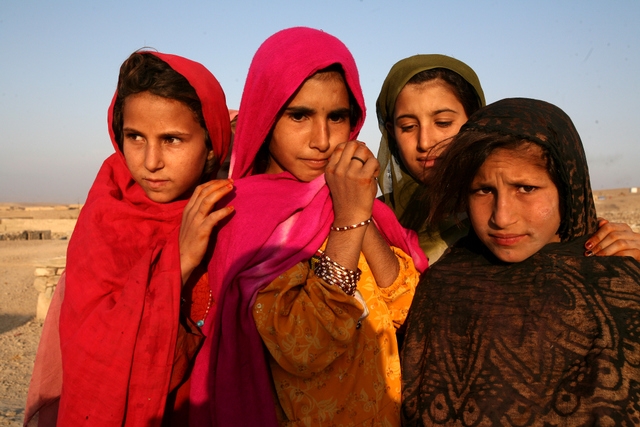August 2022 marked one year since the Taliban took over Afghanistan. That year has been defined by human rights violations, directed especially against women and girls.
By Mayssa Issaoui and Matt Tipton
On April 14, 2021, Joe Biden announced plans to withdraw United States troops from Afghanistan by September of that year. However, on August 15, the Taliban took control of Kabul. The U.S. then completely withdrew its troops and President Ghani hastily fled the country. The Taliban proceeded to announce their all-male government and declared Afghanistan an Emirate.
Prior to their consolidation of power, the Taliban had occupied various locations across Afghanistan. They prohibited music, dancing, movies and cinema, and restricted women’s access to medical care. Women were forced to wear all-covering burqas and girls who were over 10 years old were not allowed to go to school. Upon acquiring control, the Taliban promised that such inhumane practices would not be nationally imposed. They assured international observers that women and girls would be allowed to resume their daily lives and pursue their education.
Yet, over one year on, women in Afghanistan are forced to cover their faces. Most of them are not allowed to work. Numerous restrictions and policies have been enforced that prohibit most girls from resuming their education or job roles. Gender-based violence has also increased since the Taliban’s ascent to power, and child marriage has sky-rocketed. According to Amnesty International’s report, there are three principal areas of restriction: in education, work, and movement.
In education, girls in secondary schools have not been able to resume their studies, and female university students face restrictions in relation to their dress, behaviours, opportunities and movement. This led several of them to drop out of school.
A young Afghan living in the UK, who shall be referred to as Abdul, grew up in Panjshir. He has female family members currently living under Taliban rule and is therefore keeping a close eye on developments. He explained the educational situation: “some girls can go to school when they’re young. But you can never trust [the Taliban] because it gets more difficult when girls are over eighteen years old. There are some Taliban members who say that girls shouldn’t go to secondary school, so girls struggle to go to college or university. There are others who claim that girls can, but they must be in separate classrooms from boys.”
Women also face constraints in relation to their work. After the Taliban’s acquisition of power, women in high leadership positions were forced to leave their roles to be replaced by men. Others were simply told to “stay at home.” Women are currently not allowed to interact with or treat people from the opposite gender.
Regarding clothing, women are forced to cover themselves from head to toe. Their decision-making on this matter is treated as inferior: they must accept that their male relatives are responsible for their own compliance with these rules. Women also lack freedom of movement, being prohibited from leaving their houses without a “mahram” (male chaperone). Though, they are currently “advised” not to do so regardless.
Lisa Curtis and Nader Nadery, writing recently in Foreign Affairs, argued that the persistence of such issues means that it’s “time to get tough on the Taliban.” The regime attempted to strengthen its international legitimacy after the expiration of the UN-imposed travel ban that forbade its attendance at any international conferences. After the expiry, Taliban officials traveled abroad in order to gain some form of international vindication. Representatives of the regime could therefore go to Norway and Uzbekistan while simultaneously facilitating their domestic repression against women and girls.
It is incredibly difficult to find an obvious solution to the human rights problem in Afghanistan. However, the international community should be careful when deciding how it engages diplomatically with the Taliban so that it does not inadvertently legitimise their malignant practices. If it does engage, it will have to be innovative in the way that it tries to induce behavioural change – perhaps, by trying to find compromises that guarantee human wellbeing. Any contact should only be pursued with this aim as its priority.
Regarding more drastic, long-lasting, and comprehensive change, the quest for a solution gets even more complex. The international community is restricted in what it is capable of doing.
But Abdul is frank when asked how meaningful change would come about: “that’s the big question. That’s what everyone wants to know. All I know is that it will never change under them. It will stay the same for as long as they’re in power.”
Matt Tipton, Journalism Intern at Pressenza. MLitt International Political Theory, University of St Andrews. BA History, London School of Economics and Political Science. Interested in Humanitarianism, MENA, and the political philosophy of Isaiah Berlin.










